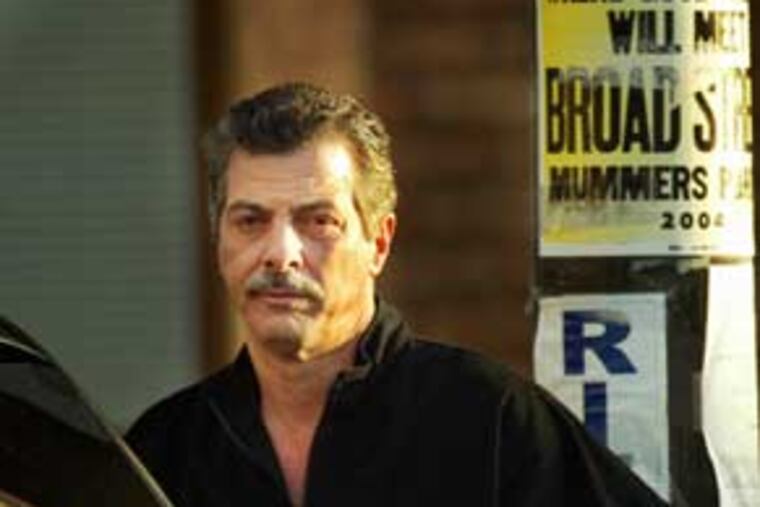Reputed Phila. mobster wins early release from jail
Joseph "Mousie" Massimino, the reputed underboss of the Philadelphia mob, is coming home after serving more than five years of a 10-year sentence on a New Jersey racketeering charge.

Joseph "Mousie" Massimino, the reputed underboss of the Philadelphia mob, is coming home after serving more than five years of a 10-year sentence on a New Jersey racketeering charge.
Judge Anthony Pugliese reduced Massimino's sentence to time served during a sentence reconsideration hearing today in Camden County Superior Court.
In issuing what amounted to a get out of jail card to the 57-year-old mob leader, Pugliese accepted the arguments of Massimino's lawyer who said "he's done more than enough time considering the nature of the crime."
In fact, attorney M.W. "Mike" Pinsky pointed out that Massimino has served more time than any other defendant in the case, including a co-defendant who pleaded guilty to the same charges and was given the same 10-year sentence.
Massimino was denied release in February by a state parole board that cited his extensive criminal history and his failure to abide by prior parole requirements.
"If you're alleged to be a member of organized crime sometimes you're treated more harshly than if you're not," Pinsky said in pointing out the disparity between Massimino's treatment and that of his co-defendants.
All eight defendants in the case pleaded guilty.
Massimino, who began serving his sentence in June 2004, was charged with being one of the leaders of a multi-million dollar, mob-linked bookmaking operation and also with engaging in loan-sharking.
The charges were part of a racketeering indictment brought by the New Jersey Attorney General's Office based on an investigation by the State Police.
Pinsky argued that while the charge was racketeering, the offenses were gambling and loan-sharking and that taken separately they would have amounted to no more than five-year sentence.
The sentence reconsideration hearing grew out of a motion filed earlier this year by Jeffrey Zucker, Massimino's original lawyer.
Zucker filed the motion after the parole board had turned down Massimino's request for release. Zucker cited a stipulation in Massimino 2004 guilty plea agreement that permitted him to ask for a sentence reconsideration if he were denied parole after serving five years.
The State Attorney General's Office neither opposed nor supported the application for release, but agreed that a sentence reconsideration hearing was warranted under the terms of the original plea deal.
Massimino would have been eligible for release in 11 months in any event. At that point, Pinsky said, he would have maxed out his sentence under state guidelines.
In addition to reducing the sentence to time served, Pugliese also ordered Massimino to serve one year probation, to enroll in gambler's anonymous and to take part in drug and behavior modification counsel.
Pugliese added those requirement after noting that the parole board, in denying Massimino's request in February, cited his failure to recognize and acknowledge his criminal behavior.
Massimino, a close associate of reputed mob boss Joseph "Uncle Joe" Ligambi, has a criminal case file dating back to the 1970s. The parole board cited his lengthy record which includes convictions for, among other things, drug dealing, assault, gambling and receiving stolen property.
He is also believed to be one of several targets in an ongoing federal racketeering investigation aimed at the Ligambi organization.
Three members of the FBI's Philadelphia-based organized crime squad were in the courtroom during today's hearing. They declined to comment about the case.
Pinsky said his client, who formerly owned a bar-restaurant in South Philadelphia, probably would be released early next week.
He first had to be returned to Northern State Prison in Newark where he has been housed for most of his sentence.
Pinsky said the prison, regard as one of the toughest in the state, was an unusual place for someone convicted of bookmaking to be housed. It was, he said, just one example of how Massimino's sentence exceeded the nature of his crimes.
"It's overkill for the type of offense we're dealing with," he said in arguments before Pugliese.